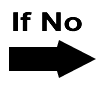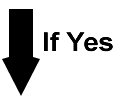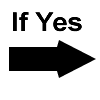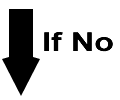Elearning:Copyright/Guidelines/Copyright Guidelines
Copyright Guidelines for UBC Faculty, Staff, and Students
Introduction
UBC and its faculty, staff and students are creators of various forms of intellectual property, as well as consumers of intellectual property. As creators, we rely on the protections offered by intellectual property laws to ensure that our work product is protected from improper use. As consumers of intellectual property, we are legally (and morally) obligated to respect the intellectual property rights of others, just as we expect others to respect our intellectual property rights.
One intellectual property right that is very important to UBC faculty, staff and students is copyright.
Infringing copyright is a serious matter and UBC requires each of its faculty, staff and students to comply with copyright law. Failure to do so may result in disciplinary action, and because UBC may be liable for the conduct of its faculty and staff, a small number of faculty or staff who fail to comply with copyright law may result in UBC being liable for significant copyright fees and damages. Faculty, staff and students may also be personally liable for copyright infringement, and be responsible for payment of such fees and damages. This document provides a basic summary of copyright law, and sets out UBC's policy regarding copyright in a way that is intended to provide guidance and assistance to help you understand what you can and cannot do with copyrighted works.
If, after reviewing these guidelines, you have any questions or concerns about your obligations under copyright law or these guidelines, or wish to receive additional guidance, please contact ubc-copyright@interchange.ubc.ca.
Your Copyright Obligations
Copyright is the sole and exclusive right of a copyright owner to produce, reproduce, perform, publish, adapt, translate and telecommunicate a work, and to control the circumstances in which others may do any of these things. Copyright owners grant permission to others through what are legally referred to as licences.
Copyright law in Canada protects a wide range of works. If you wish to reproduce a substantial part of a copyrighted work, you may only copy the work if the Copyright Act specifically allows you to do so, or if you have express permission from the copyright owner. The Copyright Act provides these exceptions for users, like universities and persons acting under the authority of a university. These exceptions provide a balance between providing copyright owners with legal rights to control use of their works, and allowing users access in specific circumstances that are in the public interest.
Steps to Determine Your Ability to Copy
The flowchart sets out a suggested step by step process that guides you through the questions you need to answer to determine your ability to copy specific works.
1. Is the work protected by copyright?
All original literary, dramatic, musical and artistic work, computers programs, translations and compilations of works are protected by copyright, unless the author(s) of the work died more than 50 years ago (and note that translations or annotations of such works are also copyrighted). If in doubt, you should presume that the work is protected by copyright.
2. Is copying of the work permitted under the Copyright Act?
Exceptions under the Copyright Act permit certain things to be done by educational institutions, or persons acting under the authority of an educational institution, that would otherwise infringe copyright. The "fair dealing exception" is one of such exceptions.
A. The Fair Dealing Exception:
The "fair dealing exception" allows any person to make a single copy of a copyrighted work for the purposes of research, private study, criticism, review or news reporting. The law relating to the fair dealing exception does not provide clear answers with respect to exactly what is permitted copying within the fair dealing exception. The Fair Dealing Guidelines, based on a model policy distributed by the Association of Universities and Colleges of Canada, provides specific guidelines for copying published work in print or electronic format by staff, faculty members and students of UBC, within this "fair dealing exception". Please note that the fair dealing exception does not apply to audio or video recordings, or authorise any of the following: making copies for sale to students in course packs, making copies of required readings for library reserve, posting copies on course management systems (e.g., Vista, aka Web CT and Blackboard), or on course websites. Faculty members should be aware that posting copyrighted materials on course management systems and/or course websites may constitute copyright infringement, even if such websites are password protected. However, UBC may have a digital license which allows UBC faculty to deliver learning materials on a secure, online website.
The guidelines may be revised and updated from time to time by UBC.
B. Other Exceptions under the Copyright Act:
Educational institutions, or persons acting under the authority of any educational institution are also allowed to do any of the following:
Reproduction of Canadian legislation:
- reproduce enactments, consolidations of enactments of the Government of Canada, decisions and reasons for decisions of federally-constituted courts and administrative tribunals, provided due diligence is exercised in ensuring the accuracy of the reproduced materials and the reproduction is not represented as an official version;
Reproduction for instruction:
- make a manual reproduction of a work by hand onto a surface intended to display handwritten material, such as a dry-erase board, blackboard, whiteboard, or flip chart;
- copy a work for the purpose of projecting an image of that copy, using an overhead projector or similar device, provided the work is used for the purpose of education and training and is not already available in a commercial format;
Reproduction for tests or exams:
- reproduce, translate or perform a work in public on the premises of UBC, as required for a test or examination, provided the work is not already available in a commercial format;
- communicate a work by telecommunication to the public situated on the premises of UBC, as required for a test or examination, provided the work is not already available in a commercial format;
Performances, Sound Recordings and Telecommunication:
- the following performances are allowed, if performed on UBC premises for educational or training purposes and not for profit, before an audience consisting primarily of students, faculty or any person who is directly responsible for setting a curriculum for UBC:
- the live performance in public, primarily by UBC students, of a work;
- the performance in public of a sound recording or of a work or performer's performance that is embodied in a sound recording; and/or
- the performance in public of a work at the time of its communication to the public by telecommunication.
Broadcasts:
- make a single copy of a work at the time that it is communicated to the public by telecommunication; and keep the copy for up to thirty days to decide whether to perform the copy for educational or training purposes;
News and Commentary:
- make, at the time of its communication to the public by telecommunication, a single copy of a news program or a news commentary program, excluding documentaries, for the purposes of performing the copy for the students of UBC for educational or training purposes; and
- perform the copy in public, at any time or times within one year after the making of such copy, before an audience consisting primarily of students of UBC on its premises for educational or training purposes.
Reproduction for Persons with Perceptual Disabilities:
- copy an entire work (other than a cinematographic work) onto an alternative format including translation, adaptation and performance in public (except the making of a large-print book) for the purpose of serving students with perceptual disabilities as long as such an adaptation is not already commercially available in that format.
3. Do you only need to include the work in a UBC course pack?
If you need to make copies of a work to be included in a course pack for sale to students, the UBC Bookstore will take care of this for you, including ensuring that the required copyright approvals are obtained. For assistance, please contact the UBC Bookstore
Vancouver campus: customcourse@mail.bookstore.ubc.ca
Okanagan campus: ubco.coursematerials@ubc.ca
4. Does UBC have an existing license which allows you to copy the work?
UBC has obtained permission for its faculty and staff to copy the work under various license agreements between UBC and the author or copyright owner, a publisher, or publisher's representative. UBC has over 600 electronic subscription licenses that give faculty and students access to thousands of journals and millions of copyrighted works. Please check the License Information Database at http://licenses.library.ubc.ca/, which has been compiled by the UBC Library for all such licenses. If you need assistance or have questions or concerns, contact the UBC Library through Jo Anne Newyear-Ramirez
5. Do you wish to request consent directly from the copyright holder?
If the copying of a work is not permitted through any of the above means and you still wish to use the work, you must seek to obtain the express permission of the copyright owner. These permissions need to be sought on a case by case basis, and there is no obligation for the copyright owner to grant your request. If the copyright owner agrees to your request, the permission to copy the work will generally come by way of a one-off transaction license agreement between UBC and the copyright owner for this one request. If a work is not available through one of UBC's existing license agreements, you should also consider whether another work (for which UBC already has a license) would be an acceptable alternative. If you have any other questions about obtaining a copyright permission for a particular copyrighted work, please contact ubc-permissions@ubc.ca.
Conclusion
This document is an overview and not a comprehensive summary of the copyright laws of Canada. For example, there are additional exceptions available to libraries (including university libraries) under the Copyright Act. Future court decisions and amendments to legislation will affect the scope of these exceptions, and in particular, the scope of the fair dealing exception. UBC may also revise and update the attached Fair Dealing Guidelines, from time to time.
If, after reviewing these guidelines, you have any questions or concerns about your obligations under copyright law or these guidelines, or wish to receive additional guidance, please refer to the Copyright FAQ or contact ubc-copyright@interchange.ubc.ca.
Flowchart
| Proceed to copy | |||
|
Is copying of the work permitted under the Copyright Act? (See Section 2) |
Proceed to copy as permitted under the Copyright Act | ||
| Do you only need to include the work in a UBC course pack? |
If you need to make copies of a work to be included in a course pack for sale to students, the UBC Bookstore will take care of this for you, including ensuring that the required copyright approvals are obtained. For assistance, please contact the UBC Bookstore | ||
|
Does UBC have an existing license which allows you to copy the work? (see Section 4) |
Proceed to copy in accordance with License terms | ||
| Do you wish to request consent directly from the copyright holder? | |||
| Do not copy | |||



